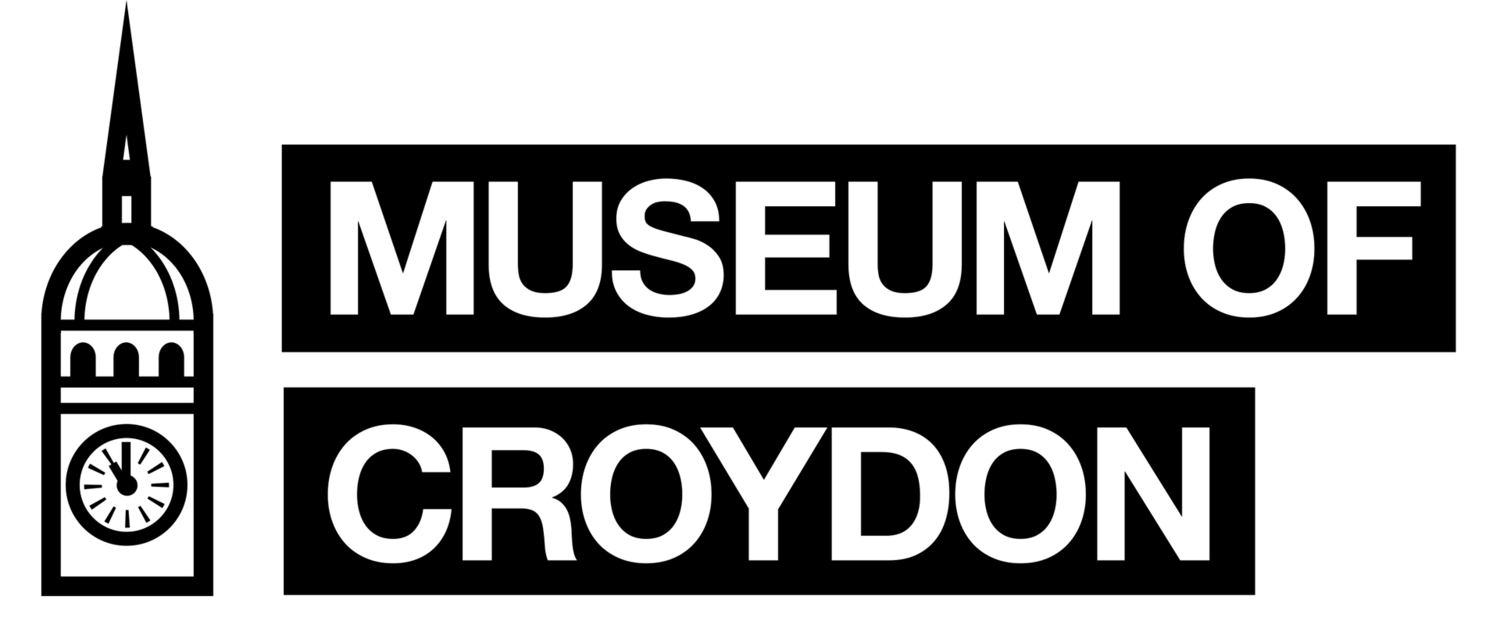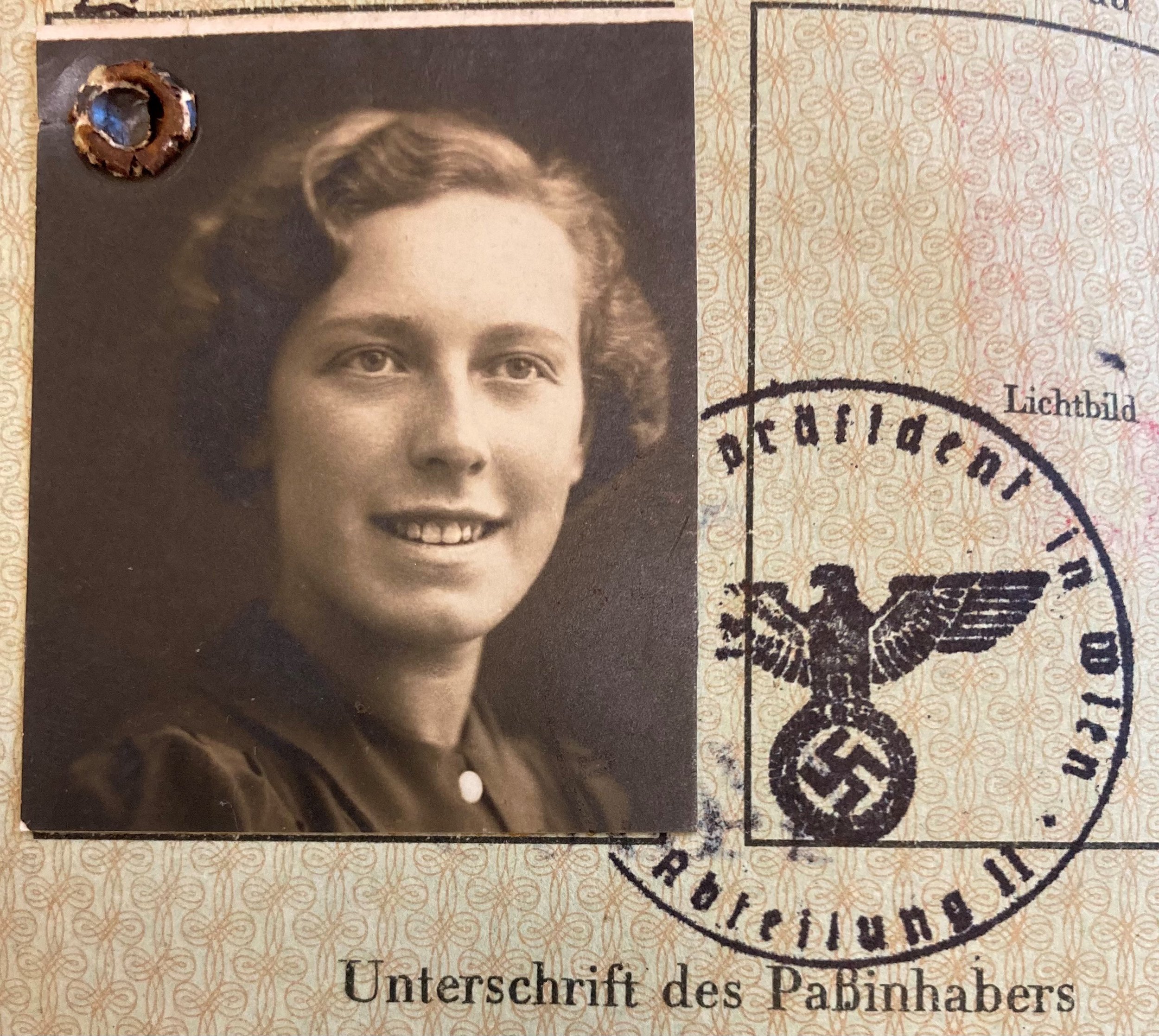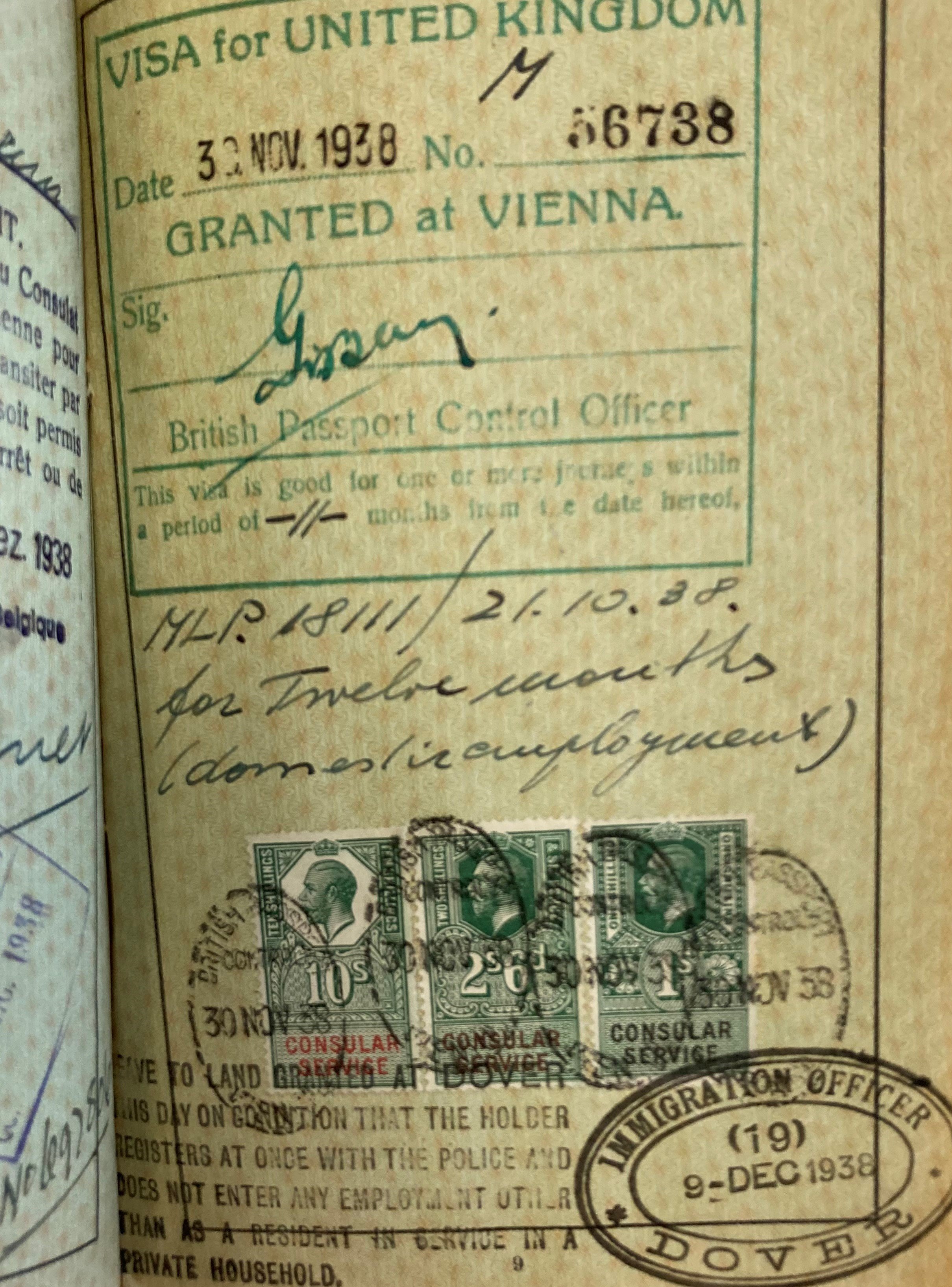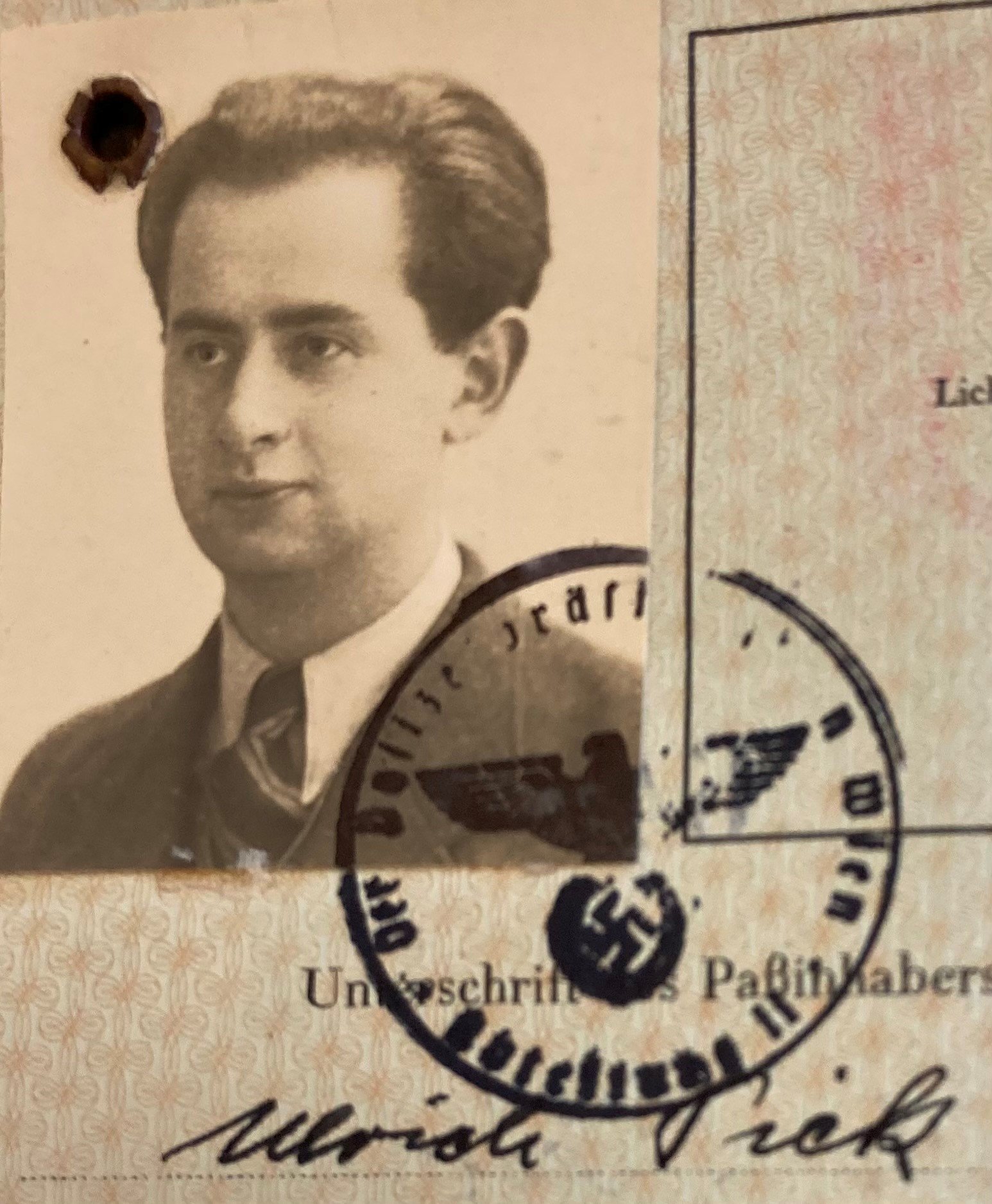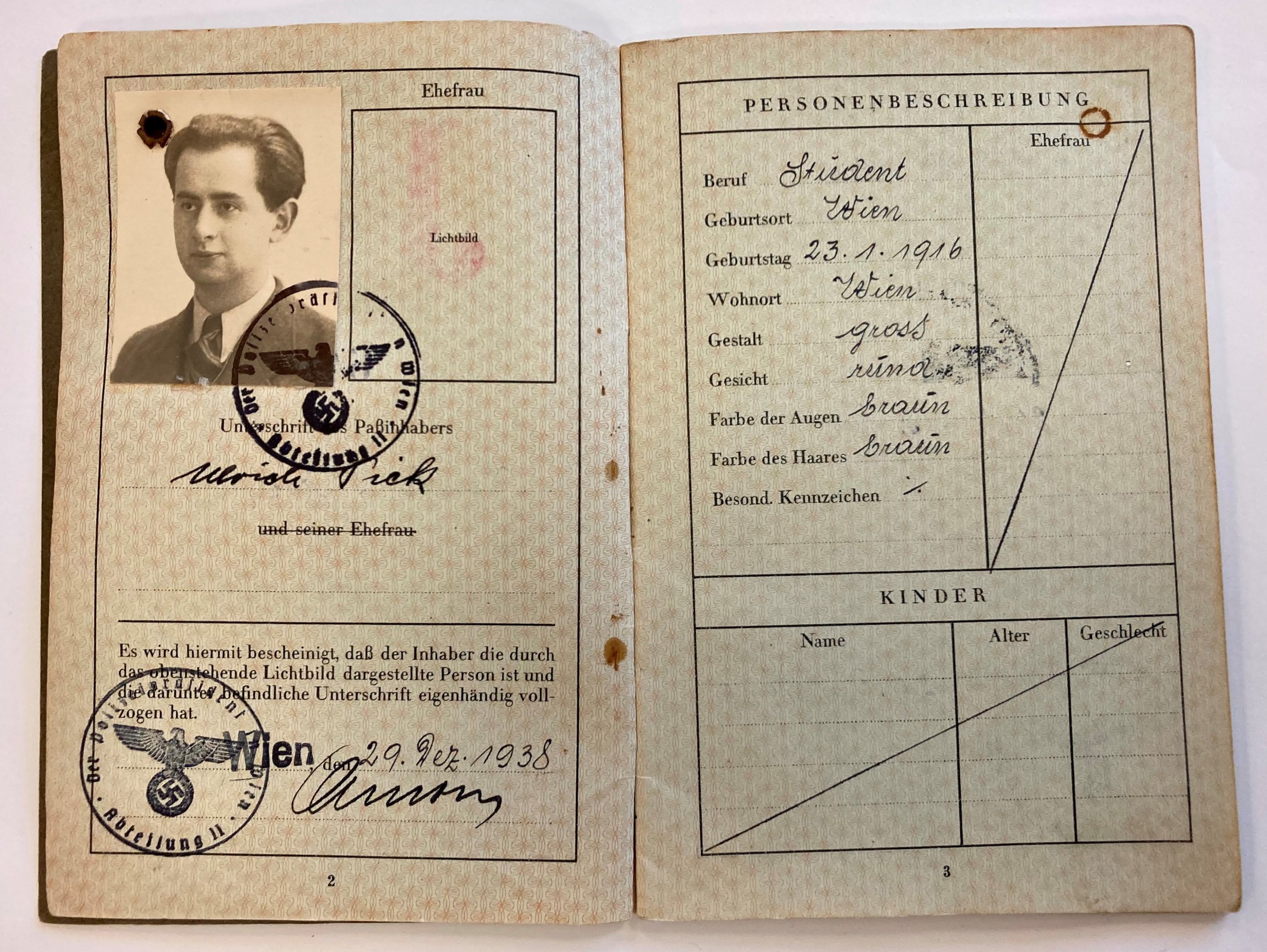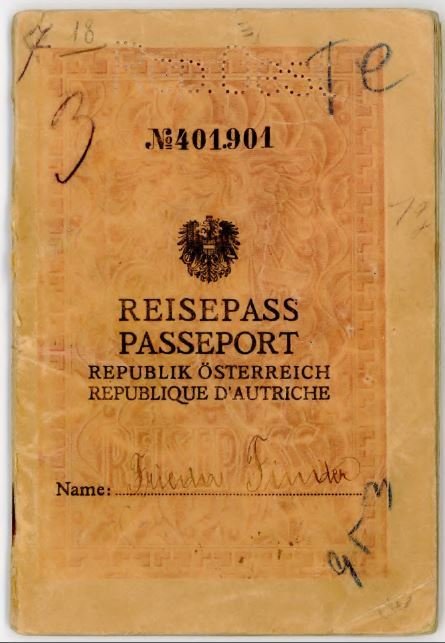Holocaust Memorial Day
To mark Holocaust Memorial Day, we wanted to share with you new donations to the collection and to highlight the collection’s links to the Jewish community of Croydon, past and present. The Croydon Jewish Community was founded in 1908 and is now the oldest Jewish community in South London. From archives on local Jewish businesses, inventors to stories - delving into the collection has been so rewarding.
New donations - Travel documents of Edith and Ulrich Pick (ref: M/2022/01-/04)
These travel documents were originally gifted to Honorary Alderman Charlie Burling by Austrian Jewish couple, Edith and Ulrich Pick. The couple settled in Canning Road, Croydon. These are a wonderful addition to the collection representing the journey Jewish refugees took escaping the Holocaust and finding a home here in Croydon.
“They were people of integrity and humanity in their generation. The memorabilia is in the form of their Austrian/German and British travel documents relating to their departure from Nazi-occupied Austria. ”
School Logs
Our archives capture the journey of refugees to Croydon. In 1939 six Jewish refugee boys started at Tavistock Senior Boys School. A further ten boys were admitted on the 20th March 1939 from Jewish schools in Germany including Cologne and Berlin. Several more children appear to have been admitted in Summer 1939. As the war progressed most were evacuated to Horsham with the rest of Tavistock pupils, although one went to America.
“Six Jewish Refugee Boys were admitted on the instruction of the Education Officer. They came from the Jüdische Schule Vienna and as they had no knowledge of English they were distributed among six classes to mix with children of their own age and capacity. ”
Newspaper clipping of refugee boys at a hostel on Elmwood Road, West Croydon (ref: Croydon Archives - source unknown)
School log books give us insight into the lives of the Jewish children as the settled in Croydon, from observing the Jewish Sabbath to a LEA inspection by Mr Greenwood who visited Tavistock to enquire on their progress on the 31st Jan 1939.
“In accordance with the instruction received from the Education Officer Jewish Children were permitted to leave school at 3.45pm to observe the Jewish Sabbath. ”
From school records of the past, my research led me to what schools are doing today in relation to the Holocaust showing the importance of such education. As part of the Holocaust Educational Trust (HET)’s Lessons from Auchwitz programme, a student from Coloma Convent Girls’ School in Croydon spoke about their visit to Auschwitz:
“In a world where disinformation can spread so quickly, and where people still claim the Holocaust didn’t happen, it is more important than ever that young people really understand what happened and why...”
Croydon Airport, 1930s (ref: PH/13/027)
Croydon Airport
My research then led me to Croydon airport, the first major international airport in Britain. In the run up to the Second World War, it saw a massive increase in passengers, including refugees as they fled mainland Europe. In the final days before the outbreak of war, Croydon saw passenger numbers increase threefold to 1500 passengers a day. On the 30th August 1939, the airport reverted back to its original role of defending Britain from aerial attack, becoming the Royal Air Force Station Croydon. You can find out more here.
For many, Croydon was a part of their journey escaping the Holocaust as they landed safely at the airport. Once such person was Steven Frank, who describes his childhood experiences when the Nazi’s came to Holland and his time in camps - the full video is here.
Steven describes his arrival:
“Do you know where we landed? Here at Croydon Airport. And like all these government places, there was always a policeman outside. He gave us each sixpence, which is about 2 1/2p in today’s money and that was the first kind thing a policemen in a uniform has said to me in five years. So I remember it very well.”
Below from The Historic Croydon Airport Trust (HCAT)’s collection are pages from two passports belonging to Franz and Frida Finder who were Jews living in Vienna when Hitler annexed Austria into Nazi Germany on 12th March 1938. They flew into Croydon Airport on 21st March 1938 where immigration gave them permission to stay in the UK for one month. They registered with the Metropolitan Police as aliens, Franz on 21st April 1938 and Frida on 4th May 1938. Later they obtained permission to remain in the UK until 21st April 1939 and finally the requirement to leave the UK was removed on 17th November 1938.
Other incredible stories to come out of my research included the heroism of two sisters Ida and Louise Cook from South London who made frequent trips back and forth to Germany via Croydon Airport. Moved by the plight of German Jews, the sisters decided to do something practical to help. They posed as tourists, hoodwinking police in thinking they were just "opera-mad English ladies". They smuggled out belongings of refugees, interviewed, found sponsors and raised money back in London - by the end of the war they had saved 29 people from persecution.
For many Croydon was a part of their journey escaping the Holocaust and for others like Edith and Ulrich Pick, their new home.
Opening Edith Pick’s passport to stamped VISA page, dated 30th November 1938 (ref: M/2022/01)
Holocaust Memorial Day has always been an important day to me, remembering those lost and the heroism of those who fought and survived. This included my grandfather Moss Woolf, a Jewish British soldier who worked alongside the American forces from France to Germany, liberating the Buchenwald concentration camp. I sadly never got to meet him and traumatised from what he saw he shared little of the experience with my father. But it is this connection that has always given me a passion to see how museums and collections can transform trauma to cultural memory in a commemorative, sensitive and educational way. I hope this blog is a small tribute to the strength and admiration I have for the Jewish community.
Jessica Woolf
Collections Officer
22 November 2022
Sources: The Jewish Chronicle, Historic Croydon Airport London, Museum of Croydon Collection and Archives
